Keeping employees motivated has always been challenging. It’s not just crucial but also more complex than ever. Many HR leaders overlook a fundamental aspect of motivation: there is no single strategy that will work for everyone. Instead, HR leaders should focus on equipping managers with the skills needed to inspire and engage their teams based on individual needs. Let’s explore the essential skills managers need to effectively motivate their teams and how HR can play a pivotal role in developing these competencies.
Understanding individual motivators
One significant oversight is the failure to recognize that motivation is highly individualistic. What drives one employee may not necessarily drive another. While financial incentives and promotions are common motivators, they aren’t universal. According to a study by the American Psychological Association, recognition and meaningful work are top motivators for many employees, often more so than monetary rewards.
Skill needed: Personal engagement
Managers need to develop the ability to understand what uniquely motivates each team member. This involves having regular one-on-one meetings to discuss personal goals, career aspirations, and what aspects of their job they find most fulfilling. Personalized motivation strategies, backed by tools like employee surveys and personality assessments, can significantly enhance engagement and productivity within their teams.
The power of autonomy
Autonomy is another crucial, yet frequently overlooked, factor in motivation. Employees who feel they have control over their work are more likely to be intrinsically motivated. Research by Deci and Ryan found that autonomy-supportive environments lead to higher levels of intrinsic motivation, well-being, and performance.
Skill needed: Empowerment and delegation
Managers should be trained to foster a culture where employees have the freedom to make decisions about how they approach their work. This can involve flexible work arrangements, the ability to choose projects, and involving employees in decision-making processes. Managers need to master the skills of delegation and empowerment, ensuring that they provide the necessary support while allowing employees the space to innovate and take ownership of their tasks.
The role of purpose
Purpose is a powerful motivator that is often underestimated. When employees understand how their work contributes to the broader goals of the organization, they are more likely to feel motivated and committed. According to a report by McKinsey & Company employees who find meaning in their work are three times more likely to stay with their current employer.
Skill needed: Visionary communication
Managers must ensure that their team members understand the company’s mission and vision, and how their roles fit into these larger objectives. This requires strong communication skills, particularly the ability to articulate the bigger picture and connect daily tasks to the organization’s long-term goals. Regularly sharing stories of how the organization’s work impacts clients or the community can help reinforce this sense of purpose.
Creating clarity: A leader’s essential role
A leader’s job is to create clarity—clarity of roles, goals, and how work gets done. This means leaders need to understand things like decision-making, communicating expectations, and ensuring the presence of a clear and compelling goal. When employees have a clear understanding of their roles and the goals they are working towards, they are more likely to be motivated and engaged.
Skill needed: Strategic clarity
Managers should focus on providing clear directions and expectations. This involves defining roles, setting clear objectives, and ensuring that communication lines are open and effective. By creating clarity, managers can help employees understand their contributions to the organization and feel more connected to their work.
Feedback and recognition
Feedback and recognition are critical components of motivation that are often not given the attention they deserve. According to Gallup’s State of the American Workplace report, employees who receive regular recognition are more engaged, productive, and loyal to their organization.
Skill Needed: Effective feedback delivery
Managers should be adept at providing frequent and meaningful feedback. This doesn’t always have to be in the form of awards or bonuses; simple acknowledgments in meetings, personalized notes, or public recognition can be very effective. Managers need to learn how to deliver feedback constructively and regularly, helping employees understand their progress and areas for improvement. This fosters a culture of continuous development and motivation.
Emotional intelligence in leadership
Effective motivation also requires emotionally intelligent leadership. Leaders who are aware of their own emotions and those of their employees can better navigate interpersonal dynamics and foster a supportive work environment.
Skill Needed: Emotional intelligence
HR should focus on developing emotional intelligence within their leadership teams through development programs that emphasize self-awareness, empathy, and effective communication skills. Leaders who can connect with their teams on an emotional level are better equipped to understand and address their motivational needs. Emotional intelligence training can help managers build stronger relationships and foster a positive work environment.
Continuous learning and development
Lastly, continuous learning and development opportunities are crucial motivators that are often neglected. A LinkedIn Learning report found that employees who spend time learning at work are 47% less likely to be stressed, 39% more likely to feel productive and successful, and 21% more likely to feel confident and happy.
It’s important to note that learning and development (L&D) is not solely the responsibility of the L&D team. It needs to be owned as a core tenet in the business, with everyone self-developing and every manager actively developing their people.
Skill Needed: Development planning
Managers should encourage a culture of continuous learning by providing access to training programs, supporting skill development, and promoting career advancement opportunities. They need to develop skills in identifying and facilitating relevant learning opportunities, helping employees map out their career paths, and ensuring that the organization supports their growth.
Conclusion
Motivation is a multifaceted concept that requires a deep understanding of individual needs, the provision of autonomy, a strong sense of purpose, regular feedback and recognition, emotionally intelligent leadership, and opportunities for continuous learning. HR leaders play a crucial role in equipping managers with the skills to understand and meet these needs. By focusing on these often overlooked aspects, managers can create a more motivated, productive, and loyal workforce.
This article is part of the Precision Matters series. In the series, HR and L&D leaders share their expert strategies for utilizing Learning & Development tools to craft precise, impactful business outcomes and foster organizational growth.
Ready to turn insights into impact?


















